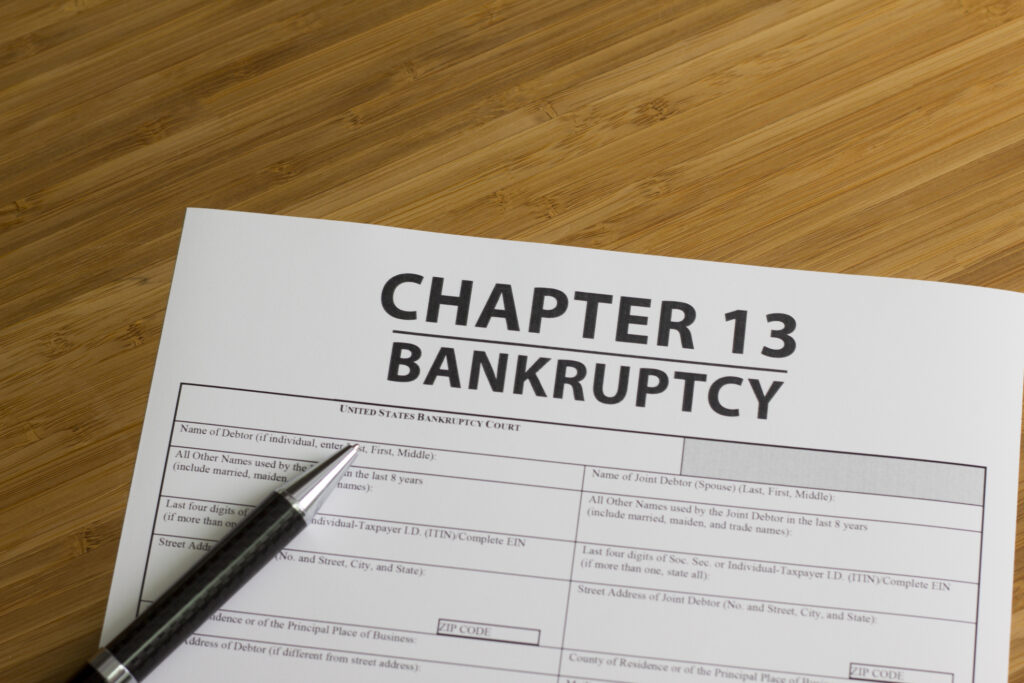Introduction
In today’s world dealing with debt can be quite challenging. While both Chapter 13 bankruptcy and non-bankruptcy debt consolidation aim to ease the burden of debt, it is crucial to comprehend their benefits. This is for individuals to make informed decisions about their financial future.
Chapter 13 Bankruptcy: A Chance for a Fresh Start with a Structured Approach
• Debt Restructuring: with Chapter 13 bankruptcy, individuals have the opportunity to reorganize their debts into a repayment plan that typically spans three to five years. This structured approach offers a path towards resolving the debt.
• Automatic Stay Protection: When someone files for Chapter 13 bankruptcy, an automatic stay is triggered. This legal protection halts creditor actions such as foreclosure, wage garnishment, or collection calls. It provides relief and safeguards individuals from financial stress.
• Debt Discharge: Upon completion of the repayment plan any remaining eligible debts are discharged. This creates an opportunity for a fresh start financially and wipes the slate clean.
Non-Bankruptcy Debt Consolidation: A Unique Approach to Managing Debt
Consolidated Payment: bankruptcy debt consolidation involves merging multiple debts into one payment; making it easier to repay and potentially reducing overall interest rates.
Credit Score Preservation: Unlike bankruptcy, debt consolidation may have an impact on credit scores allowing individuals to maintain a better credit profile.
Flexible Options: There are methods for bankruptcy debt consolidation such as debt management plans, balance transfers, or personal loans. These options offer flexibility in selecting the approach.
Advantages of Chapter 13 Bankruptcy Compared to Non-Bankruptcy Debt Consolidation
Structured Repayment Plan: Chapter 13 provides a court-approved repayment plan that creditors must follow. This ensures a legally binding approach to resolving debts.
Comprehensive Debt Discharge: Chapter 13 allows for the discharge of eligible debts providing a more complete solution compared to nonbankruptcy consolidation where debts still need to be paid off.
Creditor Protection: The automatic stay in Chapter 13 bankruptcy immediately stops creditor actions. This offers relief from collection activities that nonbankruptcy options might not guarantee.
Legal Protections: Bankruptcy offers safeguards and oversight ensuring that the repayment plan is followed. On the other hand, nonbankruptcy methods rely on agreements; which may be subject to changes or disputes.
In conclusion
While both Chapter 13 bankruptcy and nonbankruptcy debt consolidation aim to relieve individuals of their debt burdens, Chapter 13 bankruptcy provides advantages. These include a repayment plan, discharge of debts, and legal protections. These factors often make it a reliable and robust path to recovery for individuals facing overwhelming debt.
Before making any decisions, individuals should seek guidance from a bankruptcy attorney or financial advisor. This will help them understand the implications of both options and determine the approach based on their specific financial circumstances.


Get a Free Bankruptcy Case Evaluation